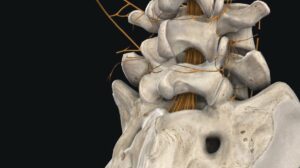NEW YORK (Reuters Health) – Monitoring carbon dioxide levels in addition to standard pulse oximetry in patients undergoing propofol sedation during colonoscopy reduces the incidence of oxygen desaturation, according to a German study.
“The positive effect of capnography was even more pronounced when comparing the incidence rates of severe hypoxemia,” note the authors of the report in the American Journal of Gastroenterology online May 29.
Dr. Stefan von Delius, at the Klinikum rechts der Isar der Technischen Universitat Munchen, in Munich, and colleagues note that pulse oximetry just measures hemoglobin oxygenation and does not entirely reflect ventilatory status as altered respiration may precede hypoxemia by up to 2 minutes. They speculated that near real-time ventilation assessment provided by capnography might provide an early warning of impending hypoxemia.
To test this, they conducted a randomized study in which 760 patients scheduled for colonoscopy were assigned to a control arm with standard monitoring or an intervention arm with additional capnographic monitoring.
“In both study arms, detection of apnea or altered respiration induced withholding propofol administration, stimulation of the patient, chin lift maneuver, or further measures,” the investigators explain.
Oxygen desaturation, defined as a fall in SaO2 of 5% or more or a level of <90%, occurred in 38.9% of subjects in the capnography arm compared to 53.2% in the control arm (p<0.001), the team found. The incidence of hypoxemia (SaO2 <90%) was 12.5% in the intervention group versus 19.8% in the standard group (p=0.008), and corresponding rates of severe hypoxemia (SaO2 = 85% or lower) were 3.7% versus 7.8% (p=0.018), respectively, according to the report. “We showed a beneficial effect of capnography for colonoscopy,” Dr. von Delius and colleagues conclude. However, they point out, capnography has also been shown to be useful during procedural sedation in the emergency department. “Thus, we were able to broaden the evidence in support of capnography for monitoring of procedural sedation,” they add. SOURCE: Capnographic Monitoring Reduces the Incidence of Arterial Oxygen Desaturation and Hypoxemia During Propofol Sedation for Colonoscopy: A Randomized, Controlled Study (ColoCap Study)




